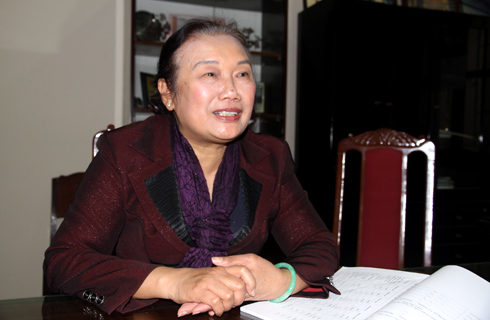Further SCT tweaks seem imperative
 |
Several provisions amending and supplementing articles of the Law on Special Consumption Tax (SCT Law) will come into force from 2017, 2018, and 2019. Why do you propose the further amendment of the SCT Law?
In the recent bout of revision, provisions on products and services incurring excise tax were not amended, changes were only applied to tax rates and the taxable price. This means that the types of products and services incurring excise tax remain unchanged since the SCT Law was first introduced in 1998, which is unreasonable.
For example, at the time the SCT Law was compiled, air conditioners were considered luxury goods by most people. At the time the state did not encourage the use of air conditioners by individuals and households because the power supply was not sufficient to meet this additional demand. It made sense for air conditioners to incur excise tax at that time.
Today, thanks to vigorous economic development, people’s income and living standards have improved. The use of air conditioners has become increasingly popular. More and more people from rural areas use these products nowadays. In my view, it is important to remove this product from the list because this kind of tax, apart from helping to raise state budget collections, also contributes to steering consumer habits and restricting consumption.
Similarly, imposing an excise rate of 30 per cent on massage services is also unreasonable, because massage is a therapy which promotes health.
In many instances massage businesses are owned by visually impaired people trying to earn a living, and their income remains low. Therefore, the removal of massage services from the list of SCT bearers is reasonable.
Will new products and services be added to the excise tax bearers’ list?
That is correct. For instance, contrary to the aforementioned massage services, beauty spas are flourishing in many locations and are frequented by mostly well-off people. This kind of service is yet to incur excise tax, and in my view, it more deserves to be added to the list.
Since the introduction of the SCT Law, tobacco and ale products are subject to frequent excise tax increases. What is the reason for this?
Before 2012, liquor from 20 per cent proof incurred 45 per cent excise tax, which was then increased to 50 per cent. It was revised upward to 55 per cent on January 1, 2016, and will rise to 60 per cent and 65 per cent in 2017 and 2018, respectively.
Ale products, when used in moderation, can have certain benefits.
At times however, these products are overused in locations throughout the country, which can prove problematic. Increasing the excise tax rate on these products is important, as one of the functions of SCT is the manipulation and control of consumer habits.
It is a similar situation for tobacco products. Its excise rate rose to 70 per cent in 2016 (previously 65 per cent), and will jump to 75 per cent by 2019. This will thwart the rise of tobacco smuggling in the central region and south-western border provinces.
What the stars mean:
★ Poor ★ ★ Promising ★★★ Good ★★★★ Very good ★★★★★ Exceptional
Latest News
More News
- Cashless payments hit 28 times GDP in 2025 (February 04, 2026 | 18:09)
- SSIAM and DBJ launch Japan Vietnam Capital Fund (February 04, 2026 | 15:57)
- Banks target stronger profits, credit growth in 2026 (February 04, 2026 | 15:43)
- Vietnam on path to investment-grade rating (February 03, 2026 | 13:07)
- Consumer finance sector posts sharp profit growth (February 03, 2026 | 13:05)
- Insurance market building the next chapter of protection (February 02, 2026 | 11:16)
- NAB Innovation Centre underscores Vietnam’s appeal for tech investment (January 30, 2026 | 11:16)
- Vietnam strengthens public debt management with World Bank and IMF (January 30, 2026 | 11:00)
- Corporate bond market poised for stronger growth cycle (January 28, 2026 | 17:13)
- Vietnam's IPO market on recovery trajectory (January 28, 2026 | 17:04)
















 Mobile Version
Mobile Version